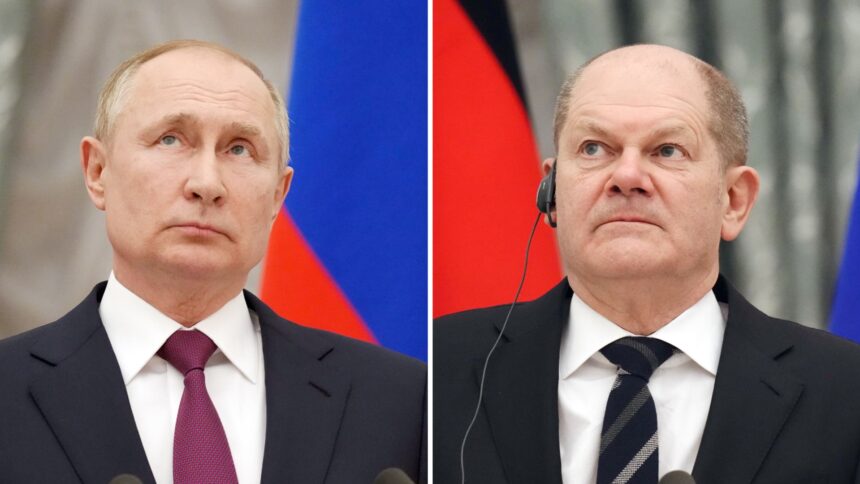German Chancellor Olaf Scholz (SPD, r) and Russian President Vladimir Putin look up after several hours of one-on-one talks at a joint press conference. Scholz met the Russian president to discuss the situation on the Ukrainian-Russian border.
Kay Nietfeld image alliance | Getty Images
German Chancellor Olaf Scholz called on Russian President Vladimir Putin in a rare phone call on Friday to start talks with Ukraine that would pave the way for a “just and lasting peace.”
In the one-hour phone conversation, the first in almost two years, Scholz also demanded the withdrawal of Russian troops from Ukraine and reaffirmed Germany’s support for Ukraine, a German government spokesman said.
The call comes as Ukraine faces an increasingly difficult situation on the battlefield due to lack of weapons and personnel as Russian forces continue to advance.
“The chancellor urged Russia to show its willingness to enter into negotiations with Ukraine with the aim of achieving a just and lasting peace,” the spokesman said in a statement.
“He emphasized Germany’s unbreakable determination to support Ukraine in its defense against Russian aggression as long as necessary,” the spokesman said.
Scholz spoke with Ukrainian President Volodymyr Zelenskiy before the phone call with Putin and will brief the Ukrainian leader on the outcome, the spokesman said.
Germany is Ukraine’s biggest financial backer and biggest arms supplier after the United States, whose future support for Kyiv looks uncertain after Donald Trump’s victory in the US presidential election.
Trump has repeatedly criticized the scale of Western financial and military aid to Ukraine and suggested ending the war quickly, without explaining how.
Scholz and Putin last spoke in December 2022, 10 months after Russia launched a full-scale invasion of Ukraine, sending relations with the West into the deepest freeze since the Cold War.
Scholz, Germany’s most unpopular chancellor on record, is preparing for national elections on February 23 in which the Social Democrats face fierce competition from left-wing and far-right parties critical of Germany’s support for Ukraine.




